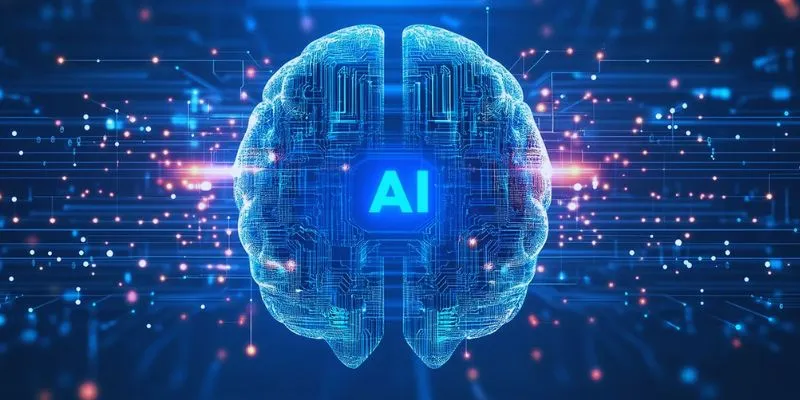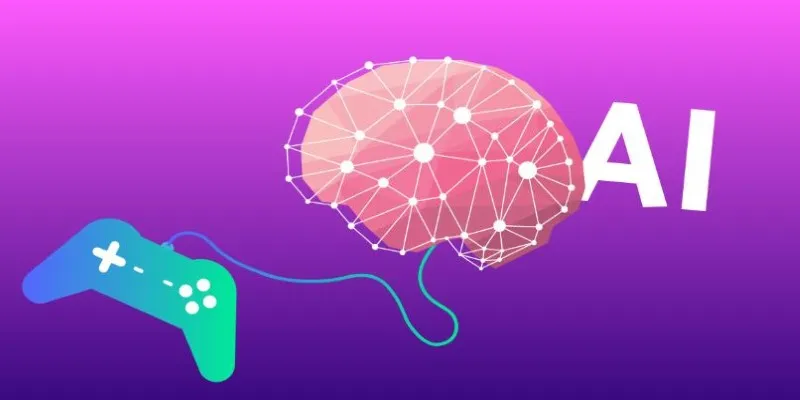Have you ever wondered how social media knows exactly what you want to see? That’s no coincidence. It’s AI in digital advertising at work. Artificial intelligence is revolutionizing advertising by helping brands automate complex tasks, such as managing ad budgets and understanding customer behavior.
AI empowers advertisers to make informed decisions, enhancing their business strategies rather than relying on guesswork. Additionally, AI is shaping the future of advertising with its ability to personalize, predict trends, and innovate marketing approaches. However, it does come with its challenges. If you’re keen to understand how AI is transforming digital advertising, keep reading!

How Is AI Transforming Digital Advertising?
Artificial intelligence is reshaping digital advertising by making campaigns more efficient, data-driven, and cost-effective. It allows businesses to reach the right audience with the right message at the right time. Here’s how AI is transforming digital advertising:
- Automating Ad Campaigns: AI handles time-consuming ad management tasks like adjusting bids and managing budgets. This automation allows marketers to focus on crafting better strategies without the hassle of manual monitoring.
- Analyzing Data in Real Time: AI’s ability to process data quickly enables it to analyze user behavior, engagement rates, and ad performance in real-time, allowing for quick adjustments to achieve the best results.
- Cutting Costs and Boosting ROI: By targeting the most relevant users, AI optimizes ad spending, reducing wasted budgets and increasing overall return on investment.
In short, businesses can leverage AI tools in advertising to enhance performance, save time, and maximize profits.
What Are the Benefits of AI in Advertising?
Artificial Intelligence is transforming digital advertising. Here are some key benefits of using AI in advertising:
- Automated Campaign Management: AI automates ad placements, bidding, and budget allocation, reducing manual work and improving efficiency.
- Better Audience Targeting: By analyzing user behavior and interests, AI ensures that ads reach the most relevant audience, increasing engagement and conversion rates.
- Real-Time Data Analysis: AI processes vast amounts of data instantly, enabling advertisers to make timely adjustments and improve ad performance.
- Cost Efficiency & Higher ROI: AI reduces ad spending by targeting the right audience, leading to better results without overspending.
- Personalized Advertising: AI creates customized ads based on customer preferences, increasing engagement and conversion rates.
- Predictive Analytics: AI forecasts trends and consumer behavior, helping advertisers make informed decisions and stay ahead of the competition.
- Fraud Prevention: AI detects and prevents ad fraud by identifying suspicious activity, ensuring businesses don’t waste money on fake clicks or impressions.

AI Advertising Tools
You can harness AI in advertising without building your system. Here are some tools to help optimize your campaigns:
- Adzooma: Simplifies PPC management by integrating Google, Meta, and Bing Ads into one platform, offering insights for optimization and easier auditing.
- Semrush PLA Research: Analyzes competitors’ Google Shopping strategies, revealing their keywords, pricing, and ad positioning.
- Persado: Uses AI to craft personalized messages based on past interactions, reducing the need for extensive A/B testing.
- Emotiva: Measures user attention and emotional responses through engagement tracking and facial movement analysis, optimizing ad performance.
- SensorTower Pathmatics: Provides in-depth advertising data to track competitors and identify new marketing opportunities.
- Omneky: Automates A/B testing by generating multiple ad variations, enabling businesses to quickly test different designs, fonts, and colors.
Examples of AI in Advertising
Here are examples of AI in advertising:
- AI Optimization Features in Meta and Google Ads: Google Ads and Meta Ads use AI for Smart Bidding, analyzing data to optimize bids for maximum ROI. They also employ broad match and Responsive Search Ads for better results. Meta offers tools like AI Sandbox for generating ad copy and backgrounds.
- Content & Product Recommendations: Tools like PickyPilot integrate with eCommerce platforms to recommend products based on user behavior, while Calm uses Amazon Personalize to suggest relevant meditation content.
- AI-Powered Content: Farfetch improved email open rates by using AI-generated subject lines. Talabat uses Meta’s Advantage+ to refine ad creatives, reduce costs, and improve conversions.
The Future of AI in Advertising
AI is set to shape a more personalized, privacy-friendly, and innovative future for digital advertising. Here’s how AI will continue to evolve in the advertising field:
- AI in a World Without Third-Party Cookies: With privacy concerns leading to the removal of third-party cookies, AI will rely on first-party data to target audiences effectively.
- AI-Generated Influencers and Virtual Brand Ambassadors: These digital personalities will change influencer marketing by offering full control and scalability across different platforms.
Challenges of Using AI in Advertising
While AI is transforming marketing by enhancing campaign intelligence, it also presents challenges. Here are some challenges of using AI in advertising:
- Balancing Innovation with Responsibility: Businesses must use AI responsibly, addressing privacy concerns due to the massive data collection and analysis.
- Consumer Skepticism and Content Overload: With an abundance of online content, standing out is difficult. Overusing AI in personalization can feel intrusive to consumers.
- Navigating Complex Regulations: Data protection laws vary by country and frequently change, requiring businesses to stay updated to avoid legal issues.
- Building Trust Through Ethical AI Use: Brands should focus on genuine engagement, transparent communication, and ethical data use to gain consumer trust.
Conclusion
AI is revolutionizing digital advertising by helping businesses save time, reduce costs, and improve audience targeting. It automates campaigns and personalizes ads, enabling smarter marketing decisions with real-time analysis. However, it’s crucial for businesses to use AI responsibly, balancing automation with human creativity and transparency for long-term success.
 zfn9
zfn9























